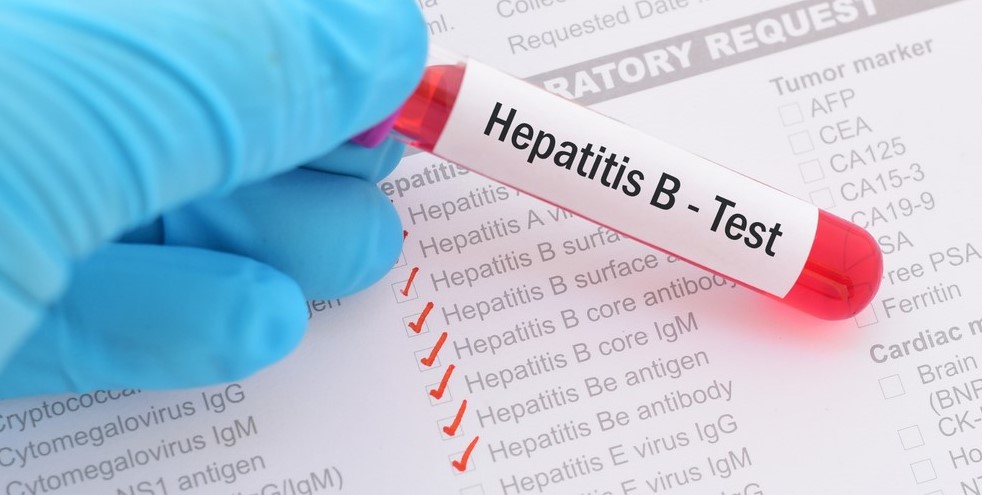Mother-to-child transmission leading cause of Hepatitis B spread despite availability of vaccine

Chronic hepatitis B infection can lead to severe liver damage, such as cirrhosis or liver cancer.
More To Read
- Surviving the next pandemic could depend on where you live
- WHO urges countries to protect health budgets amid aid reductions
- Turkana moves to safeguard health with bold One Health Bill
- Genetic tests for cancer can give uncertain results: new science is making the picture clearer to guide treatment
- Unmasking hepatitis: The five types, their causes and treatment
- What chaos at the US CDC could mean for the rest of the world
Hepatitis B remains a significant global health challenge, particularly due to its transmission from mother to child during birth. The hepatitis B virus (HBV) causes Hepatitis B, primarily affecting the liver and potentially leading to both acute and chronic liver diseases.
According to the World Health Organisation (WHO), hepatitis B is frequently transmitted from mother to child during childbirth. It can also spread through contact with blood or other body fluids, which includes sexual activity with an infected partner, unsafe injections, or exposure to contaminated sharp instruments.
Chronic hepatitis B infection can lead to severe liver damage, such as cirrhosis or liver cancer. About 90 per cent of infants who contract the virus from their mothers or before age five will develop a chronic infection. In contrast, fewer than 5 per cent of those infected after age five will develop chronic disease.
Newly infected individuals often show no symptoms. However, some may experience an acute illness with symptoms that can last several weeks. These symptoms include jaundice (yellowing of the skin and eyes), dark urine, severe fatigue, nausea, vomiting, and abdominal pain.
In Kenya, the National AIDS and STI Control Programme reports that 90 per cent of people living with hepatitis are unaware of their condition, despite an infection rate exceeding 5 per cent. The Ministry of Health estimates that hepatitis B (HBV) and C (HCV) viruses infect over 1.9 million people, with HBV accounting for the majority (1.6 million).
A WHO study suggests that vaccination, diagnostic tests, drugs, and educational campaigns could prevent an estimated 4.5 million premature deaths by 2030 in low- and middle-income countries.
 Doctors attend to patients at a Kenyan hospital in the past. (Photo: Courtesy)
Doctors attend to patients at a Kenyan hospital in the past. (Photo: Courtesy)Doctors attend to patients at a Kenyan hospital in the past.
Despite the availability of an effective vaccine, hepatitis B remains a serious public health issue in Kenya. WHO's global strategy aims to combat hepatitis B and C infections by reducing new cases by 90 per cent and hepatitis-related deaths by 65 per cent by 2030. This strategy focuses on five core interventions: hepatitis B vaccination, mother-to-child transmission prevention, blood and injection safety, harm reduction services for people who inject drugs, and expanded testing and treatment.
In 2022, WHO estimated that 254 million people were living with chronic hepatitis B infection, with 1.2 million new cases each year. Hepatitis B resulted in approximately 1.1 million deaths in 2022, mainly due to cirrhosis and hepatocellular carcinoma (primary liver cancer).
Vaccination is crucial to preventing hepatitis B. The Ministry of Health recommends an initial series of two to three doses of the hepatitis B vaccine, administered one month apart, followed by a booster dose at six months or later. Completing the entire series is critical for full protection. All infants born to mothers with hepatitis B should receive the vaccine at birth.
Furthermore, the Kenya Expanded Programme on Immunisation includes HBV vaccination as part of its universal immunisation strategy for all infants, as well as selectively for those at high risk.
The hepatitis B vaccine is safe, effective, and available. All babies should receive it within 24 hours of birth, with two or three additional doses spaced at least four weeks apart. After completing the three-dose series, booster vaccines are generally not necessary, as the vaccine offers protection for at least 20 years and likely for life.
To reduce the risk of hepatitis B infection, individuals should practice safe sex (using condoms and limiting sexual partners), avoid sharing needles or equipment used for injecting drugs, piercing, or tattooing, and wash hands thoroughly with soap and water after contact with blood or body fluids. Healthcare workers are also advised to get vaccinated against hepatitis B.
Top Stories Today















































